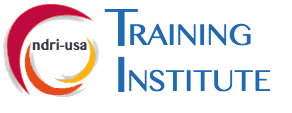e-Learning
Self-Assessment for Administrators on Trauma Informed Care
This one hour webinar will help agency leadership and supervisors assess the extent to which their agency's services are "trauma informed". Agencies that deliver services in a trauma informed manner recognize the wide-spread impact of trauma on lients and adopt an agency-wide approach to ensuring client safety in the physical space and in all interactions with staff.
By the end of the training, participants will be able to:
Begin the process of assessing their agency for trauma informed care
Review the domains of an assessment for trauma informed care
Identify common features of agencies that are trauma informed
Begin the planning process for adopting a system-wide approach to delivering trauma informed care
AUDIENCE: All administrators (directors, clinical directors, etc.) and staff members who work with people living with HIV/STIs/HCV and are interested in trauma informed care
By the end of the training, participants will be able to:
AUDIENCE: All administrators (directors, clinical directors, etc.) and staff members who work with people living with HIV/STIs/HCV and are interested in trauma informed care
Introduction to Harm Reduction and HIV/STI/HCV Sexual Risk Behavior
This webinar is for HIV/STI/HCV providers and covers the basic philosophy and practices of HIV/STI/HCV harm reduction with regards to sexual risk behavior.
By the end of this training, participants will be able to:
Define harm reduction as it is used in HIV/STI/HCV prevention
Identify at least one feeling they have about using a harm reduction approach
List at least two elements of the harm reduction model
List at least three risk reduction techniques on a risk reduction hierarchy for sexual behavior, including Sero-sorting, strategic positioning, Viral load calculating, PrEP, and PEP
Define sorting with regards to HIV risk and harm reduction
Define strategic positioning with regards to HIV risk and harm reduction
Describe viral load calculating with regards to HIV risk and harm reduction
Define PrEP and PEP with regards to HIV risk and harm reduction
Identify at least one feeling they have about negotiated safety techniques for sexual risk reduction
Part 1
Part 2
By the end of this training, participants will be able to:
Part 1
Part 2
Oral Health and HIV
This one hour webinar will explore the latest HIV clinical guidelines with an emphasis on the specific knowledge that non-clinical providers should have, and the actions they can undertake, to support positive health outcomes for clients. This webinar will feature an engaging discussion with a leading physician John M. Conry, Pharm.D., CPS, AAHIVP who served on the NYSDOH AIDS Institute Clinical Guidelines Committee that developed the clinical guideline. www.hivguidelines.org
After attending this webinar, participants will be able to:
Discuss the specific guideline and information that no-clinical providers should know to help improve daily work, and identify the actions that a provider can undertake to support their clients' positive health outcomes
AUDIENCE: Non-physician health and human services providers including case managers, care managers, patient navigators, outreach workers, and others
After attending this webinar, participants will be able to:
AUDIENCE: Non-physician health and human services providers including case managers, care managers, patient navigators, outreach workers, and others
Theory & Practice of MI - Practicing OARS - Mastering the CORE Skills of Motivational Interviewing
This webinar training will review MI Spirit, the four Processes of MI and provide practice opportunities to enhance mastery of the CORE skills of Motivational Interviewing.
Save a Life
Learn how to respond to an overdose emergency
Get Naloxone Now is an online resource to train people to respond effectively to an opioid-associated overdose emergency. Get Naloxone Now advocates for widespread access to overdose education and training in how to administer naloxone, the life-saving antidote for opioid-associated overdose. Get Naloxone Now seeks to increase the number of lives saved by bystanders and first responders (police officers, firefighters and EMTs). Find out how you can contribute to reducing overdose deaths by accessing our online training module.
http://getnaloxonenow.org/
http://getnaloxonenow.org/


